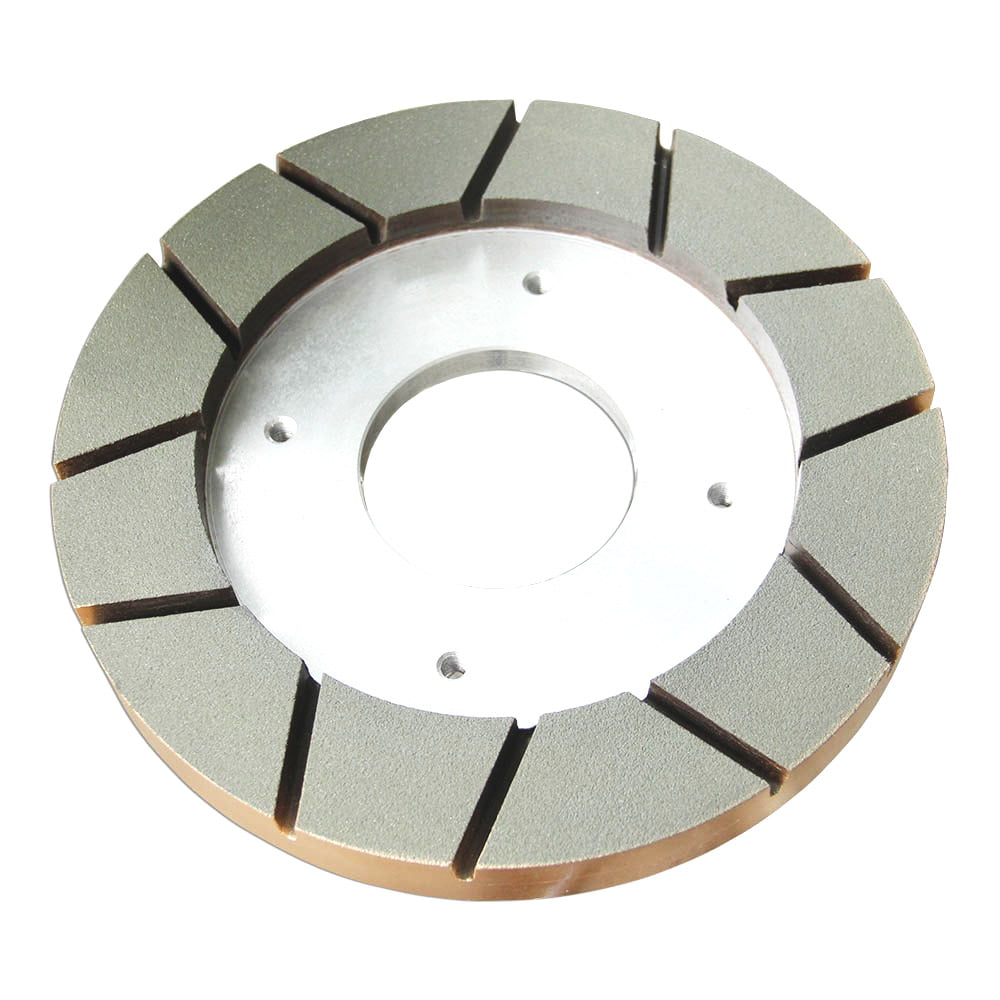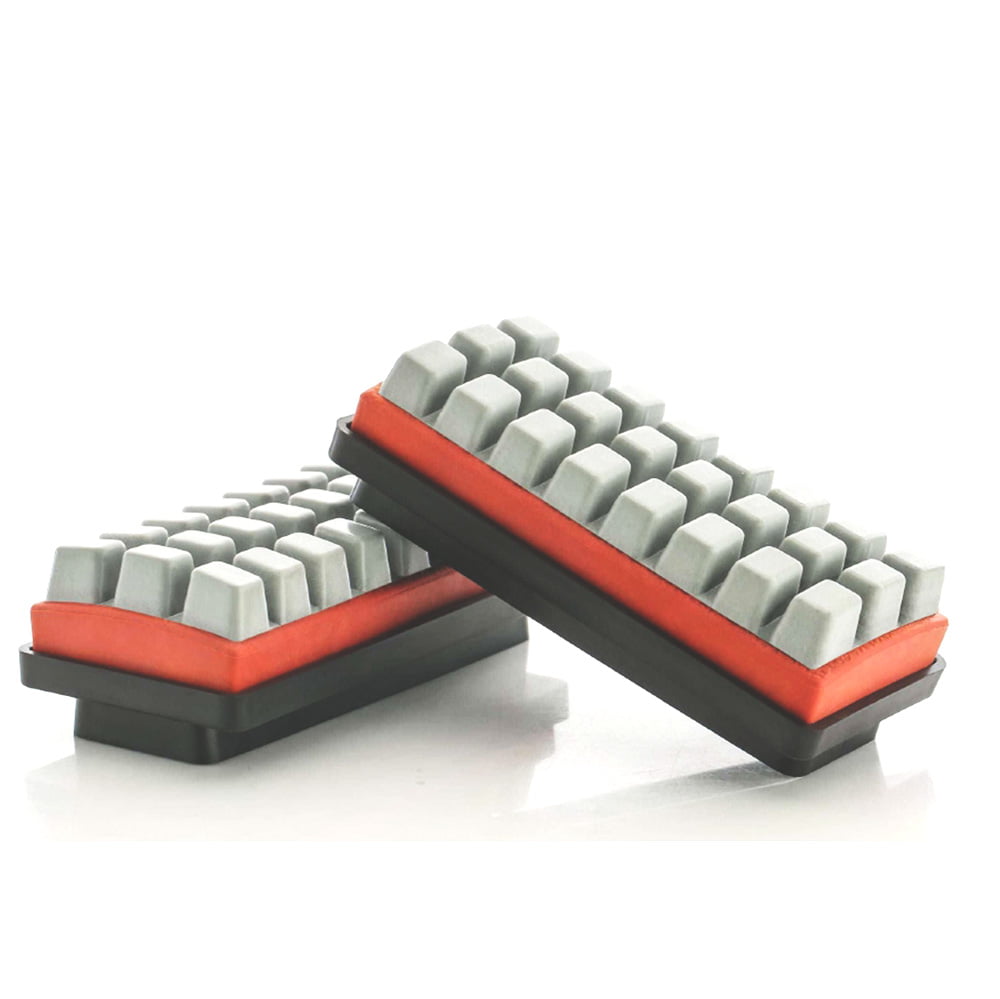Squaring wheels may sound counterintuitive, but in the world of ceramic tile manufacturing, these specialized tools play a crucial role in creating precisely shaped and smooth-edged tiles. From ensuring uniformity in tile dimensions to providing a polished finish, squaring wheels have revolutionized the ceramic tile production process.
The concept of squaring wheels encompasses a range of diamond-abrasive tools designed to grind, shape, and smooth the edges of ceramic tiles. These wheels, mounted on steel bases and available in various configurations, are integral components of modern tile manufacturing lines. Their ability to create perfectly squared edges and smooth surfaces has made them indispensable in the industry.
As we delve deeper into the world of squaring wheels, we'll explore their design, functionality, and impact on ceramic tile production. We'll also examine the latest innovations in this field and how they're shaping the future of tile manufacturing.
"Squaring wheels are the unsung heroes of the ceramic tile industry, silently perfecting every edge to create the flawless tiles we see in our homes and buildings."
| Feature | Description |
|---|---|
| Material | Diamond abrasives on steel base |
| Function | Grinding and shaping tile edges |
| Applications | Edge squaring, smoothing, chamfering |
| Processing | Dry and wet conditions |
| Configurations | Various outer/inner diameters, grit sizes |
What exactly is a squaring wheel and how does it work?
At its core, a squaring wheel is a specialized abrasive tool designed for the ceramic tile manufacturing industry. These wheels are equipped with diamond abrasives on their surface, allowing them to efficiently grind and shape the edges of ceramic tiles.
Squaring wheels come in various configurations, including different outer diameters, inner diameters, and grit sizes. This versatility allows manufacturers to choose the most appropriate wheel for their specific tile production needs.
The operation of a squaring wheel is a precise and controlled process. As tiles move through a squaring machine line, the wheel rotates against the tile edges, grinding away any irregularities and creating a uniform, square shape. In wet processing conditions, water is used to cool the contact surface, allowing for higher grinding speeds without compromising the quality of the tile edges.
"The diamond abrasives on squaring wheels act like thousands of tiny chisels, precisely sculpting each tile edge to perfection."
| Squaring Wheel Component | Function |
|---|---|
| Diamond Abrasives | Grind and shape tile edges |
| Steel Base | Provides sturdy support for abrasives |
| Grit Size | Determines fineness of grinding |
Why are squaring wheels essential in ceramic tile production?
Squaring wheels have become an indispensable part of the ceramic tile manufacturing process. Their primary function is to ensure that every tile produced has perfectly straight, square edges and a smooth finish.
In the production line, tiles are cut to size before reaching the squaring stage. However, these cuts may not always result in perfectly straight or smooth edges. This is where squaring wheels come into play, refining and perfecting the tile edges to meet industry standards.
Moreover, squaring wheels contribute significantly to the overall quality and aesthetic appeal of the final product. They help create tiles that fit together seamlessly when installed, enhancing the overall look of tiled surfaces in homes, offices, and public spaces.
"The precision offered by squaring wheels is what transforms a simple ceramic square into a professional-grade tile ready for installation."
| Production Stage | Role of Squaring Wheel |
|---|---|
| Cutting | N/A |
| Squaring | Edge refinement and shaping |
| Polishing | Surface smoothing |
How do squaring wheels enhance tile uniformity and quality?
Uniformity is a key factor in tile production, and squaring wheels play a crucial role in achieving this. By precisely grinding each tile edge, these wheels ensure that all tiles from a production batch have identical dimensions and shapes.
This uniformity is not just about aesthetics; it's also about functionality. Tiles that are perfectly squared are easier to install, resulting in more even grout lines and a more professional finish. This consistency also reduces waste during installation, as fewer tiles need to be discarded due to size or shape discrepancies.
Furthermore, the smooth edges created by squaring wheels contribute to the overall quality of the tiles. They prevent issues like chipping and cracking, which can occur more easily with rough or imperfectly cut edges.
"In the world of tile manufacturing, consistency is king. Squaring wheels are the guardians of this consistency, ensuring every tile meets the highest standards of uniformity and quality."
| Quality Aspect | Impact of Squaring Wheels |
|---|---|
| Dimensional Accuracy | High |
| Edge Smoothness | Excellent |
| Installation Ease | Improved |
What advancements have been made in squaring wheel technology?
The field of squaring wheel technology has seen significant advancements in recent years. One notable improvement is the development of more durable diamond abrasives, which extend the lifespan of the wheels and reduce the frequency of replacements.
Another important innovation is the introduction of hybrid bonding systems. These systems combine the strengths of different bonding materials to create wheels that offer both high cutting efficiency and excellent wear resistance.
Moreover, manufacturers like 'BASAIR' have developed specialized squaring wheels for different types of tiles, including glazed wall tiles and polished porcelain tiles. These specialized wheels are designed to handle the unique characteristics of each tile type, ensuring optimal results.
"The evolution of squaring wheel technology is a testament to the industry's commitment to continuous improvement and efficiency in tile production."
| Technological Advancement | Benefit |
|---|---|
| Improved Diamond Abrasives | Longer wheel lifespan |
| Hybrid Bonding Systems | Better cutting efficiency |
| Specialized Wheels | Optimal results for different tile types |
How do wet and dry processing methods differ in squaring wheel applications?
Squaring wheels can be used in both dry and wet processing conditions, each with its own advantages and considerations. Dry processing is simpler and doesn't require water management systems, but it can generate more dust and heat.
Wet processing, on the other hand, involves the use of water to cool the contact surface between the wheel and the tile. This cooling effect allows for higher grinding speeds without compromising the quality of the tile edges. It also helps prevent issues like glaze chipping and black edges, which can occur more frequently in dry processing.
The choice between wet and dry processing often depends on factors such as the type of tile being produced, the production volume, and the specific requirements of the manufacturing facility.
"The debate between wet and dry processing in squaring wheel applications is not about which is better, but rather which is more suitable for specific production needs."
| Processing Method | Advantages | Disadvantages |
|---|---|---|
| Dry | Simpler setup, No water management needed | More dust, Heat generation |
| Wet | Higher grinding speeds, Better edge quality | Requires water management system |
What role do squaring wheels play in achieving different tile edge finishes?
Squaring wheels are not just about creating straight edges; they also play a crucial role in achieving various edge finishes. Different grit sizes and wheel configurations can be used to create everything from sharp, crisp edges to softer, more rounded profiles.
For instance, a coarser grit wheel might be used initially to shape the edge, followed by progressively finer grits to achieve a smooth, polished finish. Some manufacturers even use specialized wheels to create beveled or chamfered edges, adding a touch of sophistication to the tile design.
The ability to create these different edge finishes allows tile manufacturers to offer a wide range of products to suit various aesthetic preferences and functional requirements.
"The versatility of squaring wheels in creating different edge finishes is what allows tile manufacturers to transform a simple ceramic square into a work of art."
| Edge Finish | Squaring Wheel Grit |
|---|---|
| Sharp | Coarse |
| Smooth | Fine |
| Polished | Very Fine |
| Beveled | Specialized Wheel |
How does proper maintenance of squaring wheels impact tile production efficiency?
Proper maintenance of squaring wheels is crucial for maintaining production efficiency and ensuring consistent tile quality. Regular inspection and timely replacement of worn wheels can prevent issues like uneven grinding or poor edge quality.
Cleaning the wheels regularly to remove accumulated tile debris is also important. This debris can affect the wheel's performance and potentially cause defects in the tile edges. In wet processing systems, ensuring proper water flow and pressure is essential for optimal wheel performance and longevity.
Moreover, correct wheel alignment and mounting are critical. Misaligned wheels can lead to uneven grinding, reduced efficiency, and increased wear on the wheel itself.
"In the world of tile production, a well-maintained squaring wheel is the difference between a good tile and a great one."
| Maintenance Aspect | Impact on Production |
|---|---|
| Regular Inspection | Prevents quality issues |
| Timely Replacement | Maintains efficiency |
| Proper Cleaning | Ensures consistent performance |
| Correct Alignment | Optimizes grinding quality |
In conclusion, squaring wheels are far more than simple grinding tools; they are precision instruments that play a pivotal role in the ceramic tile manufacturing process. From ensuring uniformity and quality to enabling various edge finishes, these wheels have revolutionized tile production.
As technology continues to advance, we can expect to see further innovations in squaring wheel design and materials. These advancements will likely focus on improving efficiency, extending wheel lifespan, and enabling even greater precision in tile edge shaping.
The impact of squaring wheels extends beyond the factory floor. By enabling the production of high-quality, uniform tiles, these tools contribute to the creation of beautiful, durable surfaces in homes, offices, and public spaces around the world. As we continue to push the boundaries of tile design and manufacturing, squaring wheels will undoubtedly remain at the heart of this evolving industry.



